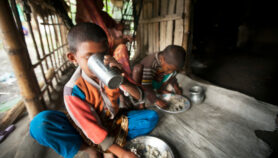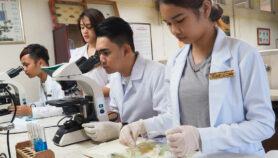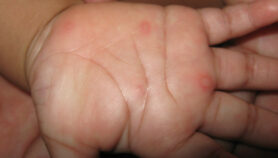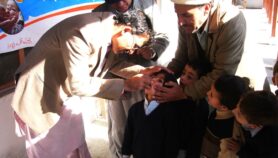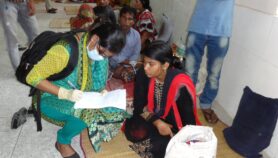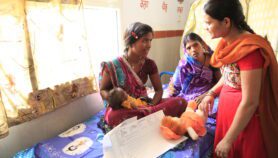28/10/22
After Gambian tragedy, Indonesia bans cough syrups
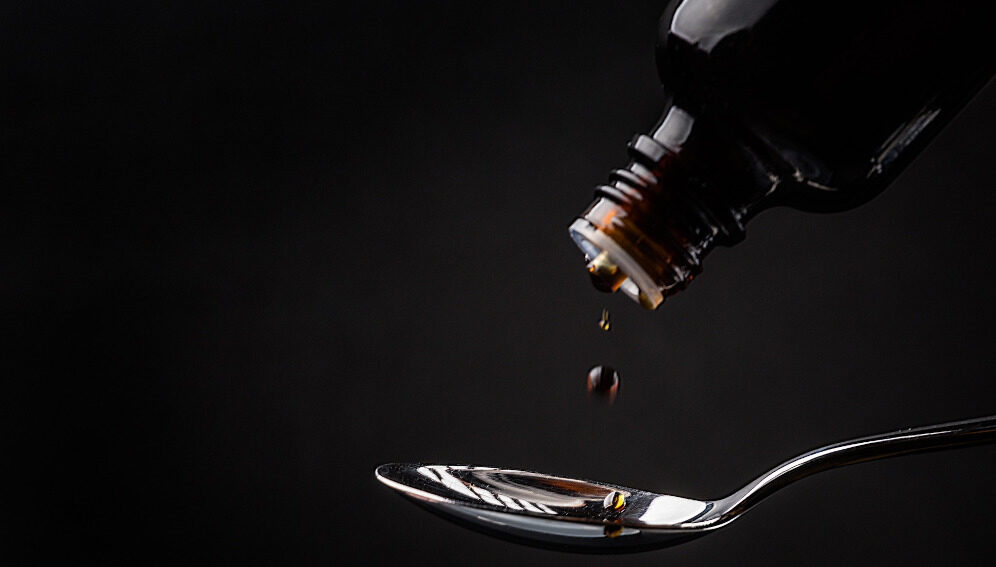
By: Athar Parvaiz
Send to a friend
The details you provide on this page will not be used to send unsolicited email, and will not be sold to a 3rd party. See privacy policy.
[NEW DELHI] Following a WHO warning about possible toxic ingredients in four cough syrups of Indian origin, the Indonesian government has ordered a temporary ban on all liquid medicines in the country over reported spike in children’s deaths linked to medical syrups.
The 19 October ban by Indonesia came two weeks after the WHO’s global medical product alert, in response to the deaths of 69 children in Gambia, a country in West Africa, from acute kidney failure.
In a series of tweets, Indonesia’s health ministry said that as of 18 October, 206 children in 20 provinces were reported to have suffered acute kidney failure and that 99 of them had died. That number have risen to 133 this week and is still expected to rise as the health ministry continues with its investigations into unregistered medical syrups sold in the country.
Hingga saat ini, belum diketahui secara pasti apa yang menjadi penyebab gagal ginjal akut pada anak
Upaya penelusuran masih dan terus dilakukan oleh Kemenkes bersama Badan POM, IDAI, Ahli Epidemologi dan Puslabfor Polri. pic.twitter.com/Nn87u18VEI
— Kementerian Kesehatan RI (@KemenkesRI) October 19, 2022
SciDev.Net reached out to the health ministry of Indonesia and the head of the Indonesian Paediatrician Association but none of them responded to queries about the connection with the Indian drugs which are supposedly not sold locally.
A WHO official said the global health organisation had “issued an alert about sub-standard/contaminated paediatric medicines – mainly cough syrups – produced by a company in India and sold in Gambia”.
According to the WHO, as of 6 October, 81 cases of acute kidney injury had been reported, including 69 fatal ones. WHO named the products as Promethazine Oral Solution, Kofexmalin Baby Cough Syrup, Makoff Baby Cough Syrup and Magrip N Cold Syrup, manufactured by Maiden Pharmaceuticals Limited, Haryana state, India. The contaminated products contained “unacceptable amounts” of ethylene glycol and diethylene glycol.
SciDev.Net tried to reach the officials of Maiden Pharmaceuticals to comment on the controversy involving their products but all calls made were repeatedly ignored.
“Every batch of medicine that is shipped out from a factory carries a certificate of analysis, a legal document that tells the buyer that the pharmaceutical company had tested the batch being shipped. If the pharma company makes misrepresentations on this document, it must be held liable”
Dinesh S Thakur, public health activist
On Wednesday, the Philippines’ Food and Drug Administration issued its own advisory against the four drug products although it clarified that they are not registered locally.
Asserting that the quality of medical products is non-negotiable, the WHO, in an email to SciDev.Net said, it was collaborating with the Gambian government as well as with Indian regulatory authorities that are pursuing investigation to ensure that unsafe products are removed from circulation. “The deaths of children, potentially linked to contaminated medicines, is a tragedy beyond words,” the WHO statement said.
Dinesh S Thakur, a public health activist and who co-authored a book about the failings of India’s drug regulation, said that the deaths of* children in the Gambia is a glaring example of the inadequate functioning of India’s drug regulatory agencies. “This has happened time and time again because India has a dysfunctional drug regulatory system … and there is no accountability of the drug regulators to the people,” Thakur told ScidDev.Net.
Said Thakur: “Every batch of medicine that is shipped out from a factory carries a certificate of analysis, a legal document that tells the buyer that the pharmaceutical company had tested the batch being shipped. If the pharma company makes misrepresentations on this document, it must be held liable.”
Queries sent to the Drug Controller General of India’s office on 20 October were acknowledged but not responded to. An official told SciDev.Net: “An investigation has been initiated and I can’t speak till the investigation gets completed.”
On 29 September India’s health ministry issued a statement saying that preliminary investigations had revealed that the products mentioned by WHO were indeed manufactured by Maiden Pharmaceutical Limited, a company based in Haryana state that had exported these products exclusively to Gambia.
“It is a usual practice that the importing country tests these imported products on quality parameters, and satisfies itself as to the quality of the products before the importing country decides to release such products for usage in the country,” the statement said.
“As per the tentative results received by WHO, out of the 23 samples of the products under reference which were tested, 4 samples have been found to contain Diethylene Glycol/ Ethylene Glycol. It has also been informed by WHO that the certificate of analysis will be made available to WHO in near future and WHO will share it with the Indian Regulator which is yet to be done,” the government statement said. “The exact one-to-one causal relation of death has not yet been provided by WHO to CDSCO (Central Drugs Standard Control Organisation).”
According to an article published by the National Library of Medicine of the US government, diethylene glycol is a toxic alcohol used in brake fluid, paint, and household cleaning products, and has been used illegally as a cheap substitute solvent in drug manufacturing.
*This article was edited on 29 October 2022 to correct a typographical error and a syntax issue.
This piece was produced by SciDev.Net’s Asia & Pacific desk.







